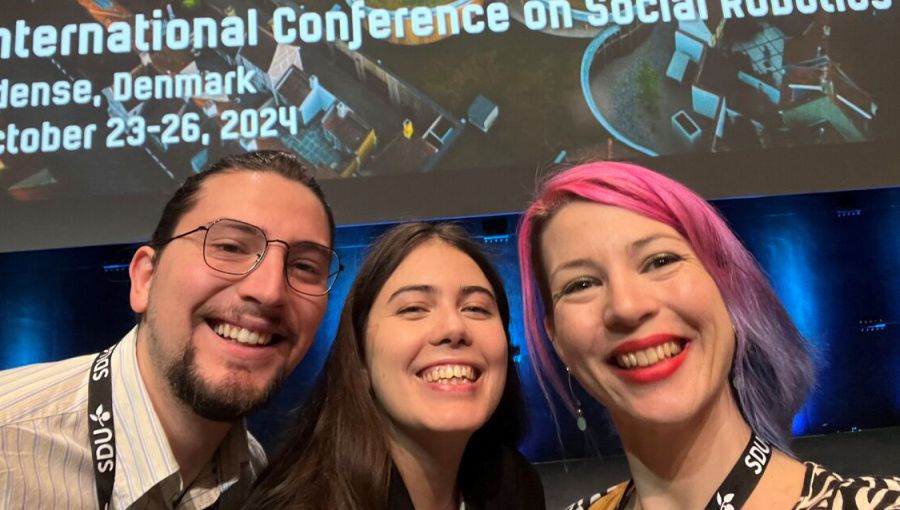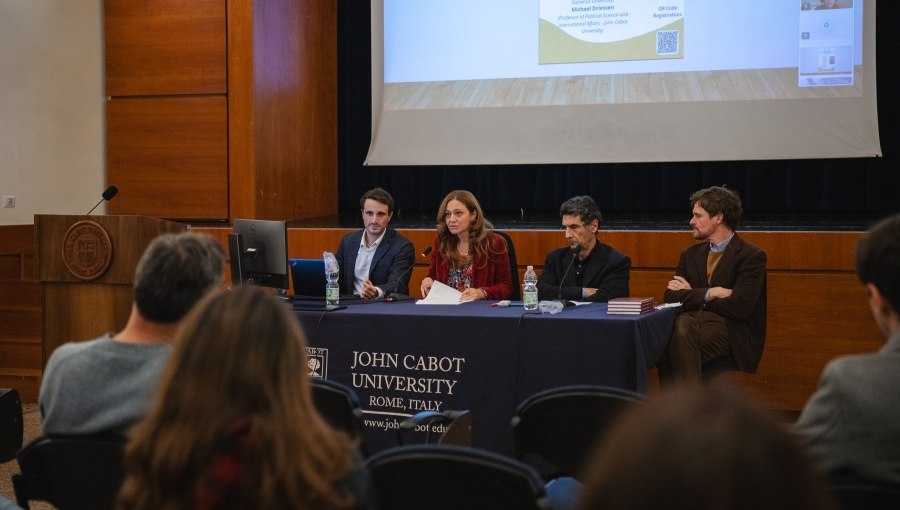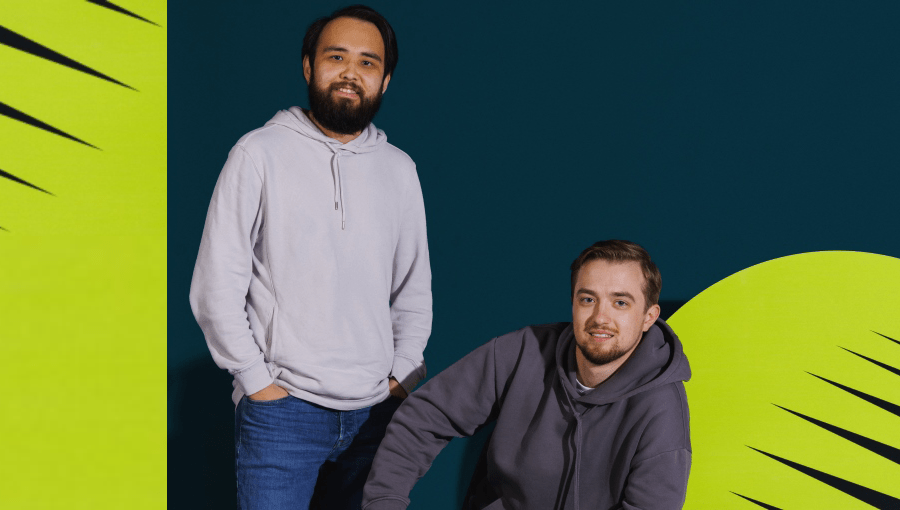Find Your Language and Take Action: Alumna Marina Traylor
Alumna Marina Traylor graduated in December 2019 with a degree in English Language and Literature. Marina grew up bilingual in Rome with an Italian mother and an American father. During her time at JCU, she was president of the Women’s Leadership Initiative. Since February 2020, Marina has been working at the Keats-Shelley House, a Roman museum dedicated to the British Romantic poets.

Marina Traylor
Congratulations on being hired by the Keats-Shelley House! Tell us a bit about your job.
Thank you! I was hired just before the pandemic hit, so to this day I still have not been able to perform all the duties that are required for my job. I am a museum assistant and part-time guide. Until now, I have only been able to work in our virtual tours, a digital experience that allows guests to visit the museum through a set of 360 degree cameras and a live guide. When restrictions ease, I will also be responsible for part of the in-person tours in the museum.
I am also in charge of design for event promotions, flyers, and social media. The museum is a publishing house as well, so I am designing a booklet of essays on John Keats’ letters by Dr. Susan J. Wolfson, an English professor at Princeton University, which will probably be released later this year.
How did your studies at JCU prepare you for this job?
I definitely would not have been able to apply for this job had it not been for the English Department at JCU. My professors were creative and each in their own way taught me to understand literature as a unique record of human struggles and an ongoing conversation between the infinite spectrum of realities we experience as individuals. I found this especially relevant for second-generation English Romantic Poets – Keats, Shelley and Byron – as they faced similar issues that young people are facing in 2021: a fast-paced radicalization and a sense of anger and alienation towards politics. Shelley was a feminist, a vegetarian, and a militant activist. In many of his works, Byron criticized the sexual hypocrisy of the British aristocracy and Keats often clashed with the critics because of the new and unusual form of his poems, which turned out to be a breakthrough. I believe a lot of people from my generation can easily identify with these struggles as we are striving to shape new ways to talk about the environment, gender, and sexuality and we are constantly searching for new ways to express our consciousness.
Tell us about a challenge that you encountered working at the Keats-Shelley House. How did you overcome it? Did you plan any special events for the 200th anniversary of Keats’ death?
It’s never easy to start a job, and I was completely new at it. Tending to a museum is a big responsibility and it involves a lot of small but important tasks and attention to detail. It’s important to be patient with yourself and your learning process. I found that if you really care about what you’re doing, you will be motivated to grow professionally, overcome your weaknesses., and do a good job.
Keats’ Bicentenary took place on February 23. It was a very exciting moment for the museum and we organized a series of online events. A particularly memorable event was the showcase of a virtual Keats, (created by the Oxford Institute for Digital Archeology), in which he read his poem “Bright Star” in the bedroom where he died. Another exciting event was the launch of our Virtual Panoramic Tour with a live guide, which enables users to virtually visit the museum. We also have upcoming events for the bicentenary of Shelley and Byron’s deaths, which are coming up respectively in 2022 and 2024.
What is your favorite thing about your job?
There are a lot of things I love about working at the Keats-Shelley House. Perhaps the moments that are most fulfilling are when visitors come in and ask questions about the poets and their lives and start up a conversation. It is amazing to share knowledge and compare opinions on the poets, it allows me to strike up meaningful conversations with strangers. I am also very proud and feel blessed about being so early in my career and yet getting to work for a cause I believe in without having to compromise with corporate jobs. The museum’s mission is to spread and popularize the words of artists I respect and I am convinced that we have much to learn from them. I have also very much enjoyed my experience as a guide. Each guide is expected to create their own talk, which means I got to pick and choose the information I want to communicate to my groups and the aspects of the poets’ lives I want my groups to reflect on. This has stimulated me to do my own research and makes me feel close to the poets every time I do a tour.
What advice would you give to current/prospective/graduating students?
I would like to give advice specifically to students who are afraid to pick literature because they fear they are going to have a harder time with their careers. I was slightly reluctant when I chose to study literature because everybody was telling me that I would have a hard time finding a job. In retrospect, regardless of my job and my future, I found this reasoning to be a disturbing insight on how most of us understand work and the role of academia. The job market changes every day, and it doesn’t require specific skills, it requires mental flexibility, drive, and passion. Precisely because the world of work is so uncertain and flexible, it’s up to us to create a new language for a new class of workers, a collectivity that cares for each individual’s education and consciousness. Reading and appreciating literature means finding new ways to communicate and to use language to express our ideas, but it also gives us a window into other experiences and unjust realities that transcend our class, our race, and our gender. A quote in The Refugees by Vietnamese-American novelist Viet Thanh Nguyen I read in my last semester really summarized what it means to read fiction:
“Just because we have listened to that story or read that book does not mean that anything has changed for the voiceless… Literature changes the world of readers and writers, but literature does not change the world until people get out of their chairs, go into the world, and do something to transform the conditions of which the literature speaks. Otherwise literature will just be a fetish for readers and writers, allowing them to think that they are hearing the voiceless when they are really only hearing the writer’s individual voice.”
So to students who are considering literature, but are doubtful because they fear it might hurt their career I say do it, find your language, listen, and take action: the world needs you.





